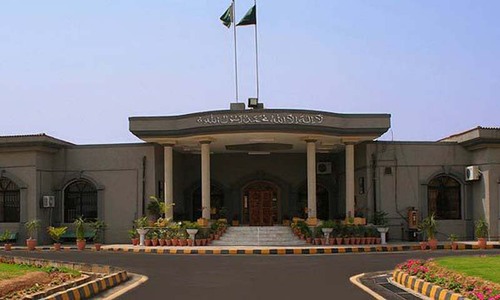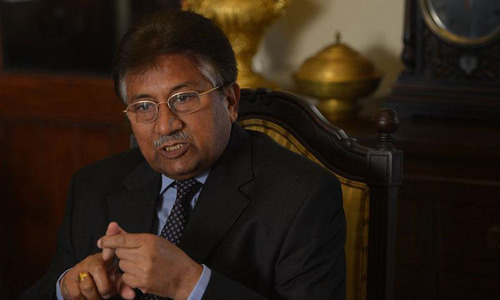ISLAMABAD: Former president retired Gen Pervez Musharraf filed in the Supreme Court on Monday a petition challenging the Special Court’s Feb 21 decision of going ahead with the high treason trial against him instead of referring it to a military court.
The Special Court, headed by Justice Faisal Arab of the Sindh High Court, had dismissed Mr Musharraf’s application seeking trial by a military court under the Pakistan Army Act (PAA) 1952.
The rejection was earlier challenged in the Islamabad High Court which on March 19 ruled that only the Supreme Court had the jurisdiction to decide the matter.
The petition in the apex court was filed by Gen Musharraf’s lawyers Sharifuddin Pirzada, Dr Khalid Ranjha, Anwar Mansoor Khan and Barrister Mohammad Ali Saif.
The court has been asked to accept the plea and declare illegal and unlawful the Feb 21 judgment of the Special Court constituted under the Criminal Law Amendment (Special Courts) Act, 1976. The Special Court should be directed not to proceed with the trial, it said.
In his petition, Gen Musharraf contended that at the time of proclaiming the emergency on Nov 3, 2007, he was serving as a regular member of the armed forces and that the alleged offense of high treason attributed to him was triable only under the PAA 1952, a law also framed by parliament as much as the High Treason Punishment Act 1973 and the Special Courts Act 1976.
The Special Court, Gen Musharraf pleaded, had taken a totally erroneous view of Sections 1, 7 and 92 of the PAA to arrogate to itself the authority to try him and lost sight of the facts that retired army officers, Khalid Muneer Khan, Gen Muzaffar Afzal and Gen Khalid Zaheer, at different times before their retirement, served as directors general in the NLC. Their cases for misappropriation were withdrawn from the National Accountability Bureau and sought to be tried by the court martial.
“Applying the rule of consistency and taking protection under Article 25 read with Article 4 of the Constitution, the petitioner’s case should have been sent to the military court,” the petition argued.
Gen Musharraf said the decision to proclaim the emergency for all intents and purposes had been taken by the government of the day. The decision at best and at worst was departure from Article 209 (Supreme Judicial Council) of the Constitution.
“The governments many times act in disregard of constitutional provisions and so do the members of the judiciary. A government cannot be arraigned by a subsequent government under Article 6 on that account,” he said.
He said filing of the criminal complaint by the federal government was coram non judice (without jurisdiction) as there was no decision for the filing of the complaint, under article 90 or for his trial to the exclusion of all those who were privy to the Nov 3 decision.
















































Dear visitor, the comments section is undergoing an overhaul and will return soon.